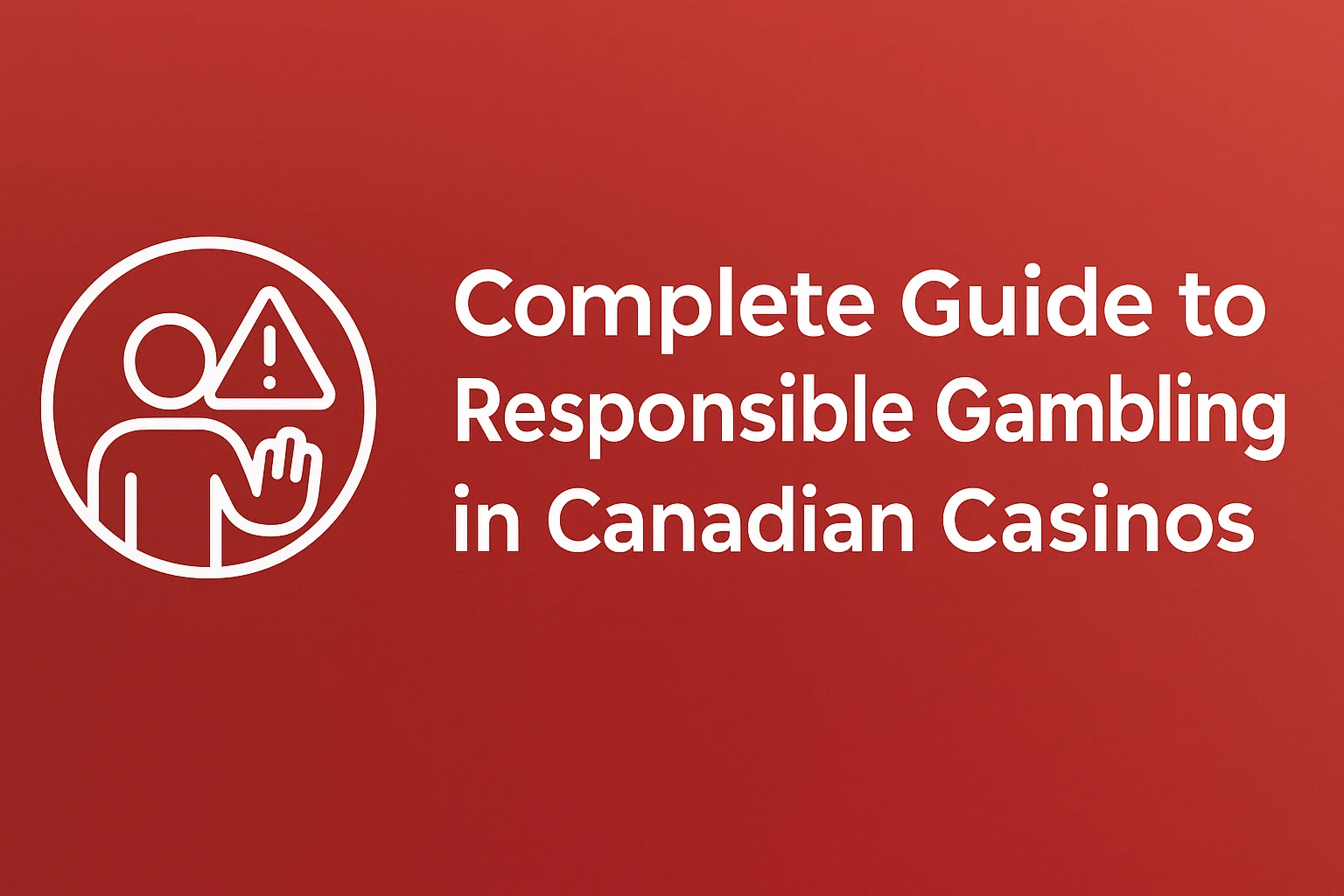Complete Guide to Responsible Gambling in Canadian Casinos

What is responsible gambling, how not to become a problem gambler, and what institutions can help you if you need it? Find out more on this page dedicated to responsible gambling. We will show you all the instruments available to you which can help you keep your gambling within bounds.
Introduction to Responsible Gambling
This article gives an easy and overall idea of what "responsible gambling" constitutes nowadays in Canada in order to be precise that gambling is to be a source of entertainment and a secure experience at Canadian licensed casinos. If you're exploring online platforms, be sure to read our detailed Platinum Play Casino review for insights into safety features and responsible gaming tools.
In fact, alongside the development of new gaming technologies, Canadian online casinos have committed to promoting responsible gambling, placing increasing emphasis on protecting individuals from gambling addiction.
In the following sections, we’ll shed light on what is often considered the dark side of the gambling industry—game fairness and player protection.
For more information on online gambling, visit other sections of our informational portal.
What Is Responsible Gambling?
"Responsible gambling" is the ability to gamble without risking the development of pathological or problem gambling behavior. The DSM-5 describes Gambling Disorder as persistent and recurrent maladaptive gambling behavior that leads to clinical impairment or distress.
Canadian casinos are regulated in such a way that participants can play sensibly. Part of the online tools is self-assessment questionnaires so that symptoms of gambling addiction can be detected.
It is critical to note that just professionals can formally diagnose problems of gambling behavior, whereas some of its signs cannot be disregarded.
For instance, gamblers may find it difficult to control or leave gambling and be agitated or uncomfortable when they attempt to do so. Such behaviors have the potential to jeopardize or damage meaningful relationships or even their employment.
Do You Have a Potential Gambling Problem?
Need a better idea of your player profile? If you think you're in the midst of developing negative gambling behaviors, test yourself.
You can complete one on any site that adheres to Canadian responsible gaming practices. They usually consist of brief and simple-to-answer Yes or No questions like these ones:
- Do you spend the whole day thinking about gambling?
- Do you need to bet bigger and bigger amounts to have fun?
- Can you stop gambling after losing?
- Do you feel guilty about the money spent on gambling?
- Are you restless or anxious when you are not gambling?
- Did you ever gamble to settle loans or mend financial problems?
- Did you ever take money on loan for gambling?
- Did gambling cause problems in your life or job?
- Did you ever deceive others about the time and money spent on gambling?
- Does gambling make you tense, anxious, or cause health issues?
How to Help a Person with a Gambling Problem
If you or someone close to you answered "Yes" to one or more of the questions outlined above, the best thing to do is stop gambling—or get them to stop it.
Reputable Canadian casinos typically have toll-free numbers or information available to help players who think they may have a gambling problem. One website recommended that is worth consulting is https://www.problemgambling.ca/, which also has a helpline.
Tools for Responsible Gambling
All licensed Canadian casinos possess tools to help players with controlling their gaming, including self-exclusion and deposit limits, which may be set for 24 hours, some months, or more.
The most common tools used for responsible gaming are:
Deposit Limits
Deposit limits control how much is deposited into an account of a player. A weekly limit is most often required at sign-up, though daily or monthly limits may be chosen as well. Once the limit is reached, further deposits are prohibited until the time period over which the limit has been reached is past.
Loss Limits
Loss limits allow players to establish how much money they can lose in a session. When players reach the upper limit, they are unable to play anymore until the next round.
Session Time Limits
Session limits restrict the time you spend logged in to your gambling account. The player is reminded by a pop-up when the session is running out of time.
Bet Limits
Bet limits restrict the highest amount of money that can be bet. They may be daily, weekly, or monthly as well. Once the limit is reached, no further bets will be accepted.
Transaction History
Transaction history holds records of every deposit and withdrawal made on your betting account. You can usually access this by contacting customer support or viewing the particular section in your profile.
Self-Exclusion
Self-exclusion enables a player to close their account for 30, 60, or 90 days—or forever. For extended situations, a player must wait a minimum of six months before they are able to resume their account. Interestingly, self-exclusion in most situations is applied across all licensed Canadian sites, not just the one on which it is initiated.
This means that members will be unable to open a new account or claim any promotional offers. They will also be enrolled in Canada's self-exclusion program when it is available in their province.
Self-Assessment Test
As mentioned earlier, the self-assessment test is a questionnaire designed to make you have a basic idea about your own gambling behavior when it comes to playing responsibly.
All licensed operators in Canada must provide this feature by law. Therefore, you’ll find a self-assessment test in the Responsible Gambling section of any properly licensed online casino or sportsbook.
But how does the test work? You’ll be asked a series of statements or Yes/No questions to reflect on your gambling habits.
Once you've finished the test, you will be provided with individualized feedback based on your responses to help improve your gambling habits in a positive, responsible way.
